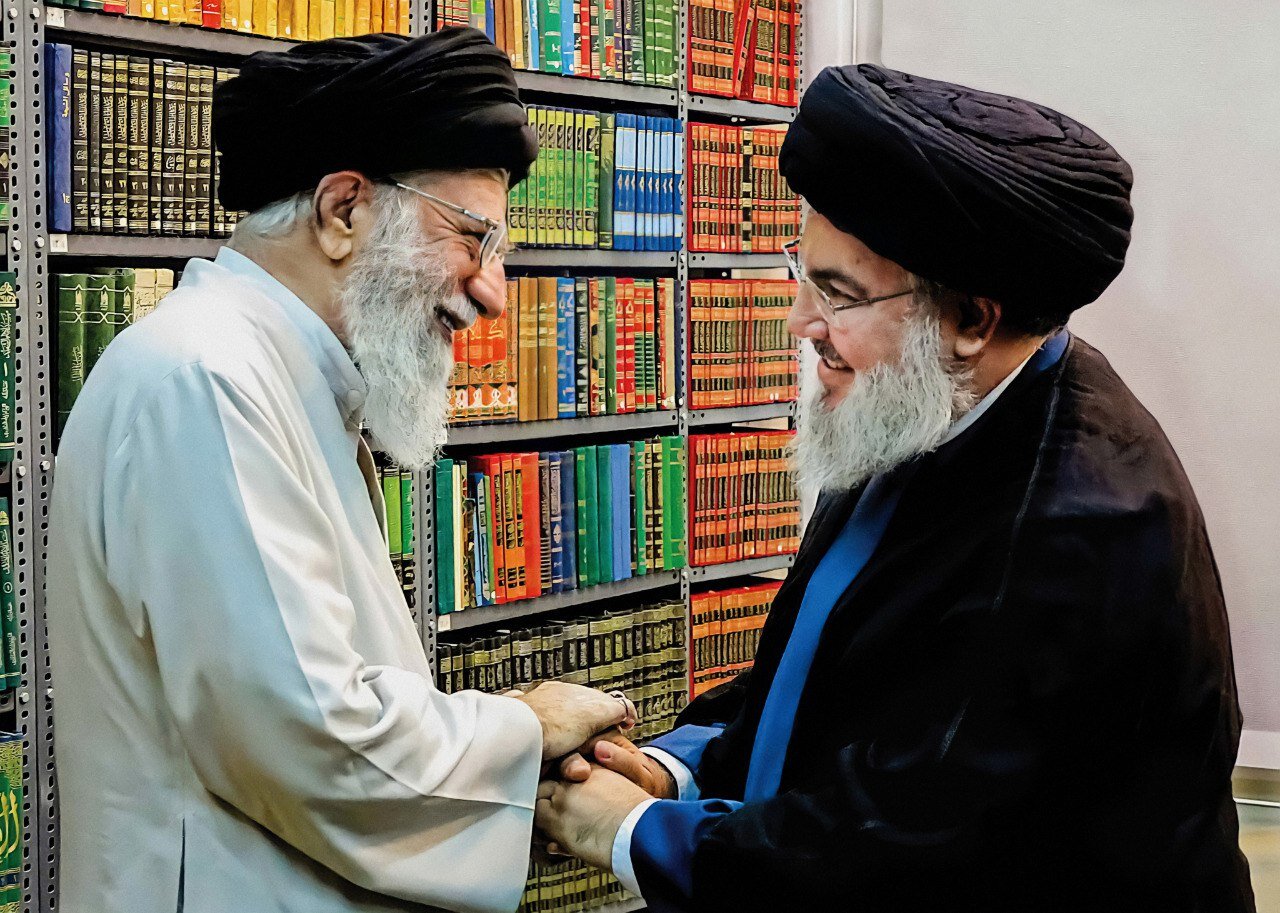Iran has Hezbollah's back
Kharrazi warns Tehran would use 'all means' to back Hezbollah in case of Israeli aggression

TEHRAN – An advisor to Leader of the Islamic Revolution Ayatollah Seyyed Ali Khamenei issued a stark warning in a recent interview with British media: any Israeli attack on Lebanon would trigger a decisive response from Iran and the entire Axis of Resistance in support of Hezbollah.
Kamal Kharrazi told The Financial Times that Tehran was “not interested” in a regional war, but would support the Lebanese resistance group with “all means.”
“There would be a chance of expansion of the war to the whole region, in which all countries including Iran would become engaged. In that situation, we would have no choice, but to support Hezbollah by all means,” he said, adding that “the expansion of war is not in the interest of anyone — not Iran or the U.S.”
In recent weeks, Israeli officials have threatened to launch a devastating attack on Lebanon, vowing to "take it back to the stone age," unless Hezbollah and residents of southern Lebanon evacuate to an area behind the Litani River, 10 kilometers from the occupied Palestinian border.
The proposal comes after months of destructive attacks on Israeli military positions by Hezbollah. The regime has attempted to force the resistance group to cease its attacks by pressuring the government in Beirut, but Hezbollah says it will continue to strike Israel until the war in Gaza comes to an end.
Is a Lebanon–Israel war on the way?
According to Ali Abdi, an expert on Israel and Palestine, a potential Israeli attack on Lebanon can be analyzed through three key aspects: motivation, decision-making, and capabilities.
“Israel has a strong motivation to attack Lebanon. Besides Hamas forces in Gaza, the group that’s inflicted the most damage on the regime is Hezbollah. The resistance group has caused significant casualties among Israeli soldiers, and significantly damaged its economy due to nonstop airstrikes, and most importantly, destroyed some of its most advanced espionage bases like the Miron surveillance base,” he explained.
While a decision to attack Lebanon has yet to be made, Abdi argued that the current political climate makes it easier for Prime Minister Netanyahu to make such a decision. The recent departure of more moderate ministers from his war cabinet has resulted in a homogenously hawkish leadership, increasing the likelihood of aggressive actions, he noted.
“The third and most important layer to a potential Israeli attack on Lebanon comes down to the regime’s capabilities. Currently, the Israeli military is stretched thin across three fronts: Gaza, the West Bank, and the northern occupied territories. Launching an attack on Lebanon would necessitate a withdrawal or reduction of forces in Gaza and the West Bank, weakening Israel’s positions on those fronts.”
Abdi also pointed out another weakness in Israel's military: its reliance on a struggling reserve system. The Israeli military heavily relies on a largely inactive reservist system for prolonged conflicts, leading to significant wear and tear on its forces, resulting in demoralization and a sense of hopelessness. “Even if they were to incorporate the ultra-Orthodox Jewish population through forceful drafting, these soldiers would likely lack the competence of the existing military personnel,” he noted.
Ultra-Orthodox (or Haredi) Jews have been exempted from mandatory military service since the very beginning of the occupation of Palestine. They typically devote their early years to religious study and are largely absent from the workforce.
The Israeli Supreme Court recently ruled that the government must enlist ultra-Orthodox Jews into the military, sparking violent protests from the Haredi community, which holds significant political influence within Netanyahu's coalition. The issue of Haredi conscription has become a contentious point of conflict between Netanyahu's government, the military, and various sectors of Israeli society, further complicating the prospect of a potential war on Lebanon.
What’s awaiting the region if Israel attacks Lebanon?
Hezbollah has gradually increased the quality and quantity of its attacks in the past months. Some of its operations have shocked both Israel and the world due to the employment of highly advanced weaponry. The group possesses a vast arsenal of weaponry, much of which remains untapped.
“I believe Hezbollah has only demonstrated 20 to 30 percent of its true capabilities. In a direct confrontation with Lebanon, Israel will encounter significant unforeseen challenges,” Abdi stated.
Moreover, with several recent statements from top Iranian dignitaries announcing that Tehran would back Hezbollah in case of Israeli aggression, It's no longer a question of just Hezbollah's capabilities. Any Israeli attack on Lebanon would inevitably draw in larger forces, a reality that even the U.S. must acknowledge before greenlighting any such action.
Brigadier General Amir Ali Hajizadeh, commander of the IRGC's Aerospace Division, also confirmed this stance on Monday. While recognizing the power and autonomy of regional resistance forces, he emphasized that Iran would stand with Lebanon against Israel, “as it always has.”
“Hezbollah is Iran’s most strategic ally in the region. Just like how Washington can’t abandon Israel, Iran would not be able to leave Hezbollah," Abdi stated.
Leave a Comment